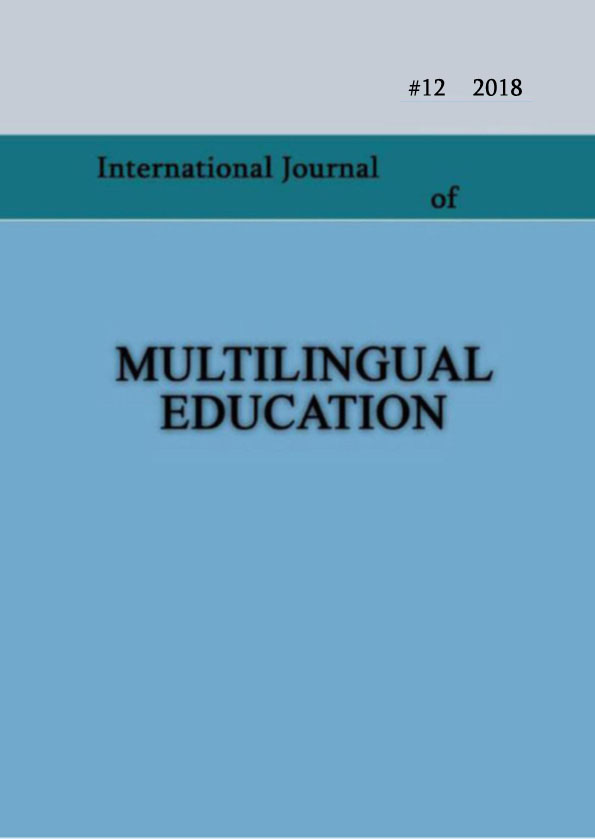Teacher Training: Educational Activities for Pre-Service Teachers
Keywords:
teacher training, types of educational activities, empirical research.Abstract
Teacher training has always been a challenge as teachers are prepared for work in the future, with a focus on developing the competencies required for a future person. Therefore, it is expedient to identify the competencies that he or she needs to develop. It is likely that those will be new directions of competence: creating new value, reconciling tensions and dilemmas, taking responsibility. In order to implement these or other competencies and literacies, it is necessary to model the study programmes of teacher training and educational activities used by teacher educators in pursuit of these goals. It is the suitability of educational activities used for the training of educators, working with the new generation, that is analysed in this article. In 2018, an empirical research was carried out on the suitability of the types of educational activities, as distinguished by D. Leclercq and M. Pournay (2005), used by the teacher educator in the preparation of pre-service teachers, with respect to the opinion of educational science researchers – experts. The research included nine researchers selected according to particular criteria, who were from three countries, namely Georgia, Latvia and Lithuania. There were three researchers from three different countries who assessed the suitability of educational activities by answering in writing to the questions submitted in the questionnaire. According to the experts, all types of educational activities may actually be suitable as long as they are targeted and properly designed to achieve the intended learning goals.
References
Commission staff working document accompanying the document proposal for a council recommendation on Key Competences for LifeLong Learning, (2018). Available at: https://eur-lex.europa.eu/legal-content/EN/TXT/?uri=CELEX%3A52018SC0014
Geros mokyklos koncepcija [The Good School Concept], (2015). Available at: https://www.e- tar.lt/portal/lt/legalAct/f2f65120a7bb11e5be7fbe3f919a1ebe
Kukla, A. (2000). Social Constructivism and the Philosophy of Science. New York: Routledge.
Leclercq D., Poumay M. (2005). The 8 Learning Events Model and its principles. LabSET, University of Liège, 2005. Available at: http://www.labset.net/media/prod/8LEM.pdf.
leidykla. Bendrojo ugdymo mokyklos kaitos gairės. (2017). [The Guidelines for the Change of General Education Schools], (). Available at: https://www.e-tar.lt/portal/lt/legalAct/aa1823b06c d11e 7827 cd63159af616c
Targamadze A., Petrauskiene R. (2008). The quality of distance learning in the situation of technological change. The quality of higher education, No 5, 2008, p. 74-93.
Targamadze A., Petrauskiene R., Rubliauskas D. (2010). Influence of Technologies on Quality of Distance learning // Electronics and Electrical Engineering. – Kaunas: Technologija, 2010. - No. 6 (102). – P. 131 – 134
Targamadzė V. (2014). Bendrojo ugdymo mokykla kryžkelėje: akivarai ir kūlgrinda. [Mokslinė monografija]. – Vilnius:Vilniaus universiteto leidykla./ Lithuanian general education school at a crossroads:quagmires and pathways. [Scientific monography] - Vilnius: Vilniaus universiteto
Published
How to Cite
Issue
Section
License
Copyright (c) 2018 Vilija Targamadzė, Mariam Manjgaladze

This work is licensed under a Creative Commons Attribution-NonCommercial 4.0 International License.
Copyright (c) - Authors who publish with this journal agree to the following terms: Authors retain copyright and grant the journal the right of first publication with the work simultaneously licensed under a Creative Commons Attribution-Noncommercial 4.0 International License, which allows others to share the work with an acknowledgement of the work's authorship and initial publication in this journal. Authors are permitted and encouraged to post their work online (e.g., in institutional repositories or on their personal website) prior to and during the submission process, as it can lead to productive exchanges, as well as earlier and greater citation of published work (see The Effect of Open Access). Authors may enter into separate, additional contractual arrangements for the non-exclusive distribution of the journal's published version of the work (e.g., post it to a repository or publish it in a book), with an acknowledgement of its initial publication in this journal.

